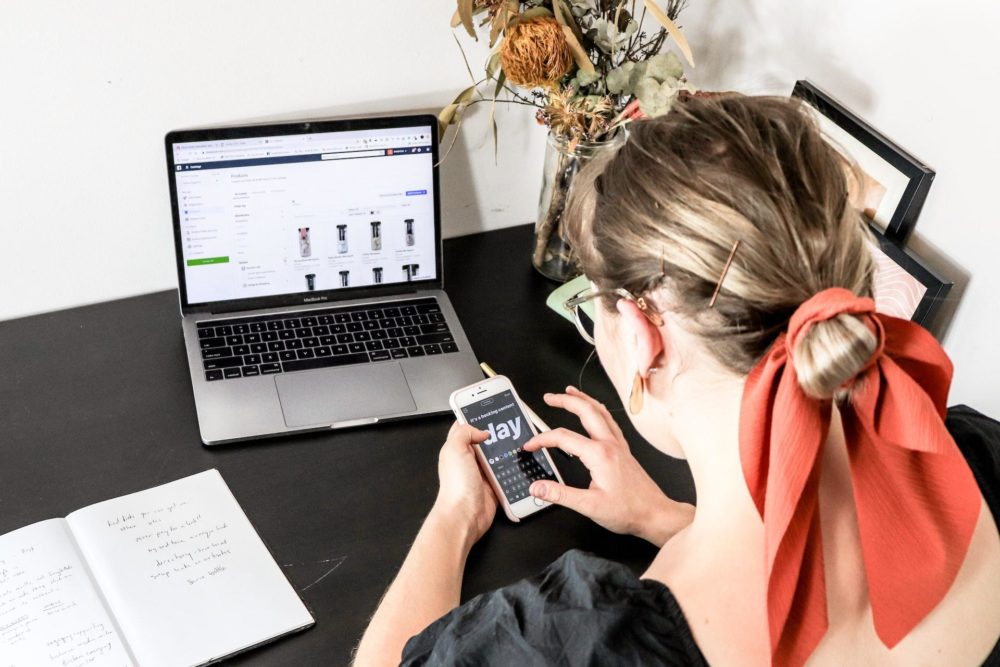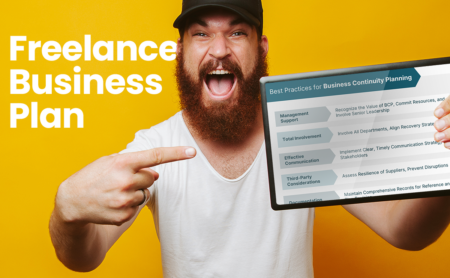With no department or firm to have their back, freelance designers often find themselves in situations where they’re expected to deliver stellar results in little time or on a shoestring budget. How should you approach such situations and not just make it out in one piece but impress the client while you’re at it? Here are several tips to fall back on next time you’re in a crunch.
Hammer Out the Details First
Aligning your deliverables with the client’s vision can become a serious drain on your time and resources. Aim to minimize misunderstandings by extensively communicating with clients beforehand. Save yourself from much of the back-and-forth by creating a design brief template.
In it, outline the project’s scope, deadlines, and deliverables, and lock the specifics in with the client and any other stakeholders before getting to work on the actual project.
Time Blocking & Task Streamlining
It has long been proven that multitasking doesn’t work. Yet, the hectic nature of their work means it’s fundamental to many designers’ workflows. Blocking your time out and devoting each chunk to specific tasks like ideation, refinement, or communicating with clients is a smarter and more productive strategy. It also helps to group and execute similar tasks instead of tackling them as they arise and disrupting your flow.
Reuse & Repurpose What You Can
Each new design project produces assets like icons, templates, or presentation decks that would be wasteful to use only once. Often only minimal tweaks to their style or color palette are enough to make these assets a seamless part of new projects. Organize them into libraries and keep these at hand to put quality results out quickly and for less.
Take Advantage of the Right Tools
There’s no shortage of design tools that can drastically boost your productivity. The best part? Quality alternatives exist for many industry-standard tools, meaning you don’t have to budget for expensive software subscriptions anymore.
Don’t limit yourself to just design-related tools, either. Time trackers can help with the aforementioned time blocking and help justify expenses to clients. Kanban boards and project management software are invaluable when collaborating with others and delegating tasks. Video and written communication tools help keep clients in the loop and minimize unpleasant surprises like sudden changes of heart.
Handle Projects Securely
Freelance design often involves working with confidential files. New logos for established brands, product prototypes, or marketing materials for upcoming campaigns — not to mention any user analytics or personal data you might gain access to — are tempting cyberattack targets. That’s why taking cybersecurity in consideration is a must for every single project.
Protect yourself and such assets by having strong, unique passwords for all accounts and being aware of social engineering attacks like phishing.
Moreover, use a VPN whenever connecting to unsafe networks like public Wi-Fi. This will create an encrypted tunnel that allows for secure communication and file exchanges, preventing them from being intercepted by anyone monitoring the network. VPNs are useful for accessing geo-restricted tools and resources. They’re indispensable when it comes to testing marketing campaigns or website layouts if a client operates in a different region.
However, make sure to get the best VPN available for your needs. Research the market and compare your options since not all VPNs provide the same features and functionalities.
Stick to the Original Scope
Design brief or not, scope creep is all too common. Sometimes you’ll want to go above and beyond after realizing part of the project. Other times, it’s the client who keeps moving the goalposts. In either case, it’s best to inform the client that you may be about to overstep the project’s original boundaries and ask for appropriate time extensions or additional compensation to keep things fair.
Automate (Within Reason)
Graphic design isn’t immune to the expansion of generative AI. It’s still imperfect, and overreliance on AI design tools can hurt your credibility while stifling originality. Even so, their ubiquity means you’ll have to incorporate AI tools into your workflows.
Doing so can be beneficial without compromising your integrity. For example, you can use these tools to create mood boards, generate textures, or remove backgrounds. This will automate the tedious stuff, leaving more time and energy to focus on your creative vision.
Keep the conversation going...
Over 10,000 of us are having daily conversations over in our free Facebook group and we'd love to see you there. Join us!


